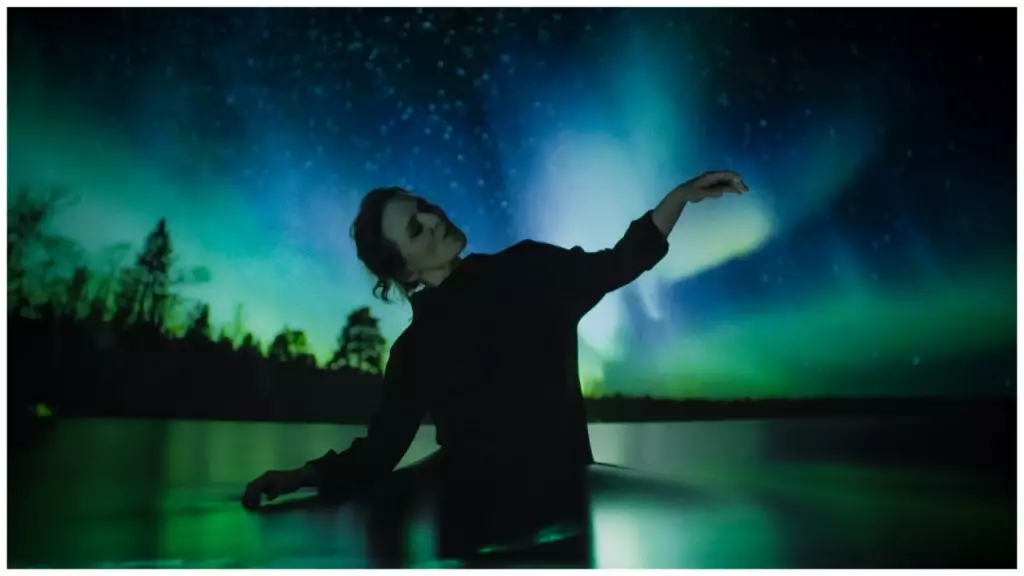The experimental biopic “Miss Geraldine Flower” captures the elusive essence of its titular character through a unique blend of music, narrative, and visual artistry. Directed by Iain Forsyth and Jane Pollard, who previously collaborated on the acclaimed Nick Cave documentary “20,000 Days on Earth,” this film ventures beyond traditional storytelling by weaving together elements of song and dramatization. Central to “Miss Geraldine Flower” is the investigation of a life lived in relative obscurity, yet rich with emotional depth and artistic resonance.
Inspiration from the Unseen
The film’s premise draws from a treasure trove of personal artifacts left by Flower, including letters, photographs, and telexes. The perspective provided by these real-life remnants breathes authenticity into the narrative, offering glimpses into a life filled with unfulfilled dreams and hidden stories. The decision to rely on these personal documents highlights the power of written communication, a theme that resonates throughout. The film opens with the unseen narrator, voiced by Sophie Ellis-Bextor, who provides insight into the significance of letter-writing—describing it as a “personal, private, permanent connection.” Such sentiments craft a collective nostalgia for a mode of communication often lost in the digital age, prompting viewers to reflect on the deeper values of meaningful exchanges.
At the heart of the film’s experimental nature is the performance by Icelandic singer Emilíana Torrini. Her auteur-driven lyrics serve not just as a soundtrack but as a poetic exploration of emotional landscapes. While some might find Torrini’s lyrics disjointed or challenging at first, they ultimately resonate with the sensibilities of the audience, unearthing layers of meaning that echo the enigmas of Flower’s own life. Sitting alongside Torrini’s ethereal melodies, Kate Coyne’s distinct choreography brings the narrative to life, emphasizing the interplay between sound and movement.
The fusion of these artistic elements creates a tantalizing atmosphere that captures Flower’s complex persona. The film’s score transforms the viewing experience, pulling audiences into its dreamlike world. With a runtime that barely exceeds 90 minutes, the film utilizes time effectively, allowing dimensional snapshots of Geraldine’s life to slowly unfold rather than bombarding the audience with overwhelming details.
A Narrative of Intrigue
Miss Flower’s life story, marked by her Australian and Irish heritage and her migration to London at the age of twenty-one, forms a backdrop for deeper exploration. Yet the film ultimately resists a straightforward biographical approach. Instead, it channels Geraldine’s spirit through an artistic lens, making her life—flawed, beautiful, and undeniably mysterious—the focus of the narrative. The film provokes questions rather than providing clear answers, particularly regarding the nature of the letters. Are they sincere declarations of love or cleverly disguised coded messages? This ambiguity serves as a powerful motif, inviting speculation and captivating the audience’s imagination.
As the film progresses, it showcases Geraldine’s duality: a person who, upon reflection of her life, fluctuates between the known and the unknown. The use of a parody educational television segment hosted by Alice Lowe further accentuates this exploration, merging humor with an analytical lens to dissect Geraldine’s complexities. While the film’s tone flits between playful and serious, it ultimately leaves viewers pondering the thin line between personal revelation and the mysteries that continue to linger in the shadows.
Like its predecessor, “20,000 Days on Earth,” “Miss Geraldine Flower” is poised to cultivate a dedicated cult audience, appealing to those who appreciate an offbeat storytelling style infused with artistic daring. The film’s abstract approach may not cater to mainstream tastes, but it rewards those willing to engage with its unconventional narrative structure. Through a poetic amalgamation of music, storytelling, and emotional authenticity, the film seeks to immortalize a life spent in the periphery, championing the narratives that often go unheard.
“Miss Geraldine Flower” triumphs as an experimental biography that transcends typical cinematic conventions, encouraging viewers to reconnect with the art of communication while reflecting upon the intricacies of personal history. By celebrating the mystique of its subject, the film beautifully encapsulates the idea that some stories, however obscured, are deserving of exploration and reverence, forever etching Miss Geraldine Flower’s legacy in the tapestry of art and memory.



Leave a Reply